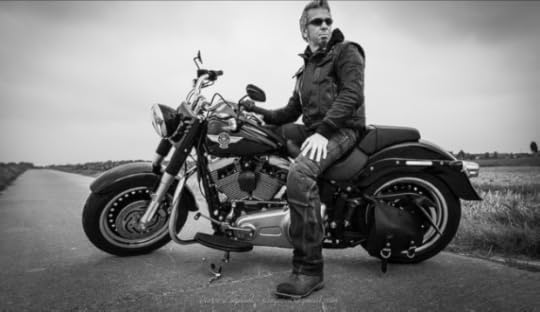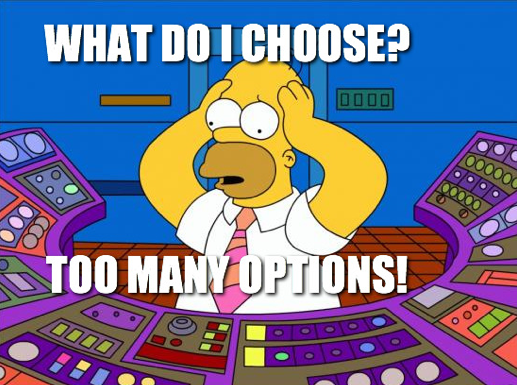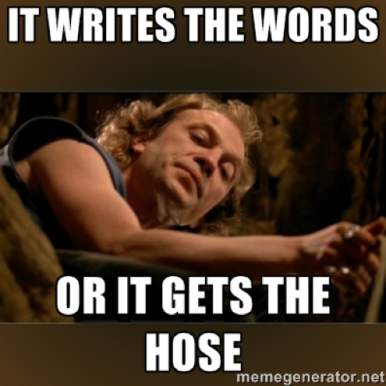Ads are NOT a Brand and Promotion is NOT Platform—Understanding the Difference

Image via Flickr Creative Commons courtesy of Ken.
Very often when I write about brand and platform, writers assume I am talking about promotion and marketing (ads) and that is not only a false assumption, it can be a fatal one. When we hop onto Twitter or Facebook and are barraged with book spam, a big reason it annoys us (though not the only) is because the author is engaging in these activities with no solid brand or platform.
It then either becomes white noise (invisible) or worse an irritation (negative branding). Writers trying to create a brand by serving up copious book promotion will have a brand all right. The brand of self-serving asshat.
The sight of the author’s face or book might even be enough to spike our blood pressure. We are far more likely to block than buy.
Why? What went wrong?
We have to look at what a brand actually IS.
What’s in a Name?

Image via Flickr Creative Commons courtesy of Pierre Lognoul
The formula for a brand is simple:
NAME + PRODUCT + EMOTIONAL EXPERIENCE
The last part is critical. In fact it might be the most critical.
Why do you think corporate empires pay so much for image consultants? Sure, Mylan once had a great reputation as a pharmaceutical company until they got greedy and decided to line their pockets at consumers’ expense.
Three years ago if we heard the term “epi-pen” we might have experienced good emotions. Oh it is a life-saving drug. Helping kids with peanut allergies. My cousin had an epi-pen and it saved her life.
Nowadays? Different story. Once we found out the top execs have been giving themselves HUGE pay raises while hiking the cost of the only drug of this kind from $100 in 2007 to over $600 today?
Consumers are now seeing RED.
Seriously all it will take is one competitor to offer something comparable and it might just be enough to bury Mylan because greed is now part of their brand. That will be a tough stain to remove.
Even though they had an amazing product, they took advantage of having a monopoly and fattened their paychecks. I don’t know if there is a PR firm who can ever undo that damage. I’m fairly sure they’re going to be relegated to the Food Lion Dimension of Shame.
This example is to point out how important emotional experiences with a brand can be, that it has never been just the product.
It isn’t just about a good book anymore.
Why Are Brands So Important?

Most of us don’t have time to research each and every purchasing decision and thus, we as consumers, are prone to rely heavily on brands. Brands let us know what to expect.
When we buy Dolce & Gabbana shoes, we expect a certain quality. We go off the name and do far less inspecting and road-testing than we would for a designer/manufacturer we’d never heard of.
We are willing to order ahead of time and pay full price and even ridiculous prices for Coach, Ralph Lauren, Prada, Versace, Harley Davidson, Porsche, BMW, Mac Computers, John Deer, etc. So on and so forth.
Starbucks is hardly the best coffee, yet they’ve become almost synonymous with “coffee.” They also have branded a “coffee experience.”
But all of these companies (brands) did the same thing. They began with a name. Of course the name means nothing without a product. The name Harley Davidson would be just a name unless it came with motorcycles. But a name and a product alone are not enough.
Harley Davidson then had to go about crafting a unique emotional experience that was unlike its competition.
All of these brands we love have something in common, though. They built the brand and the platform first. Then any advertising or promotion is already advertising an existing brand. When we get a flyer that Levis are on sale, we know what Levis are. How do we know what they are? Levis is a brand.
All of these companies also have a platform.
What is a Platform?

Image via Flickr Creative Commons courtesy of Alex Santosa.
Platform is tethered inextricably with brand. If brand is the product, then platform consists of those most likely to consume that product because they emotionally identify with the brand.
Trust me, Harley Davison is not worried about consumers who love Vespas. Sure, they are both motorized bikes, but they are selling vastly demographics and experiences.
Authors are doing the same.
We know who Stephen King is because of his brand. Because of his brand (tons of books) we know if we are part of his platform or we aren’t. If we are the type of reader who loves a sweet romance? King isn’t trying to court us. Why? We might know his brand, but we are not part of his platform.
In the old days, there was only one way to create a brand (and consequently a platform) and that was the books. Lots and lots of books (brand) cultivated a body of people who liked our writing/voice (platform). Today that is still a great plan. With so much junk floating around, when readers find a writer they enjoy, they stick like glue.

Image via Flickr Creative Commons, courtesy of Craig Sunter
This is one of the main reasons that we need to keep writing. Stop promoting ONE book. ONE book is not enough to create a strong brand/platform.
Remember:
A brand is a collection of emotional experiences.
A platform is simply those who will enjoy that experience.
Modern writers hold the advantage here.
Before the digital age, it was practically impossible to create a brand outside of the books, because the book was the only source of emotional experiences with the author.
Readers rarely had contact with an author beyond the books. Book signings, maybe magazine or radio interviews gave only slight glimpses of the author beyond the book. Today, with social media? That is no longer the case. Every blog, tweet, post, video and interaction serve to create the overall brand.
This is how bloggers like Jenny Lawson (The Bloggess) were able to become runaway successes. Lawson already had a huge fan base from her blogs and her Twitter following before the first book was ever released.
Since we are writers our product is our words. This is how blogging can become such a vital part of our brand. But beyond that, it is also going out on social media (platform of your choice) and connecting. Create a positive emotion that goes hand in hand with our name.
Hint: Spamming the crap out of people does NOT create a positive experience.
Write More Books

Thus, whenever I mention building a brand/platform I’m in no way talking about promoting or advertising. Those are separate activities that come later and their success will rest largely on how well we’ve done our job with the brand/platform.
Once we realize this, we can breathe easier and know it is OKAY to keep writing books even if we have no mega-super-duper promotion/marketing/advertising campaign for that first book. It is okay to blog or even just hang out on social media connecting. That is a VITAL part of our job and if we skip it, then any marketing later will fall on deaf ears. In fact premature promotion can actually harm or even KILL a brand.
So relax



